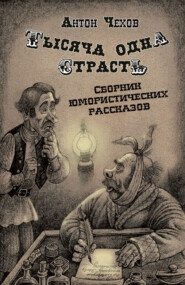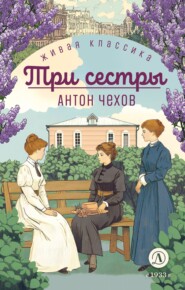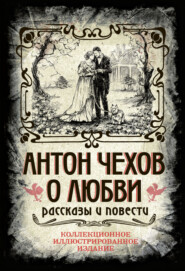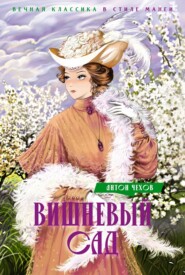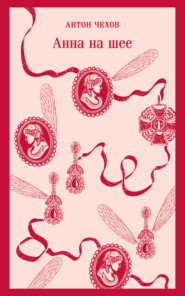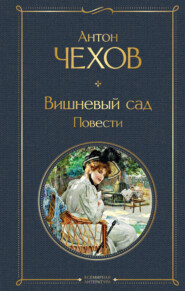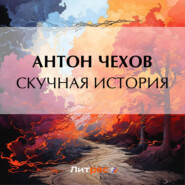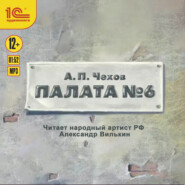По всем вопросам обращайтесь на: info@litportal.ru
(©) 2003-2025.
✖
The Witch, and Other Stories
Настройки чтения
Размер шрифта
Высота строк
Поля
“The Kutcherov lady has come! The Kutcherov lady!”
“Good-morning,” said Elena Ivanovna, and she stopped; she paused, and then asked: “Well, how are you getting on?”
“We get along all right, thank God,” answered Rodion, speaking rapidly. “To be sure we get along.”
“The life we lead!” smiled Stepanida. “You can see our poverty yourself, dear lady! The family is fourteen souls in all, and only two bread-winners. We are supposed to be blacksmiths, but when they bring us a horse to shoe we have no coal, nothing to buy it with. We are worried to death, lady,” she went on, and laughed. “Oh, oh, we are worried to death.”
Elena Ivanovna sat down at the entrance and, putting her arm round her little girl, pondered something, and judging from the little girl’s expression, melancholy thoughts were straying through her mind, too; as she brooded she played with the sumptuous lace on the parasol she had taken out of her mother’s hands.
“Poverty,” said Rodion, “a great deal of anxiety – you see no end to it. Here, God sends no rain… our life is not easy, there is no denying it.”
“You have a hard time in this life,” said Elena Ivanovna, “but in the other world you will be happy.”
Rodion did not understand her, and simply coughed into his clenched hand by way of reply. Stepanida said:
“Dear lady, the rich men will be all right in the next world, too. The rich put up candles, pay for services; the rich give to beggars, but what can the poor man do? He has no time to make the sign of the cross. He is the beggar of beggars himself; how can he think of his soul? And many sins come from poverty; from trouble we snarl at one another like dogs, we haven’t a good word to say to one another, and all sorts of things happen, dear lady – God forbid! It seems we have no luck in this world nor the next. All the luck has fallen to the rich.”
She spoke gaily; she was evidently used to talking of her hard life. And Rodion smiled, too; he was pleased that his old woman was so clever, so ready of speech.
“It is only on the surface that the rich seem to be happy,” said Elena Ivanovna. “Every man has his sorrow. Here my husband and I do not live poorly, we have means, but are we happy? I am young, but I have had four children; my children are always being ill. I am ill, too, and constantly being doctored.”
“And what is your illness?” asked Rodion.
“A woman’s complaint. I get no sleep; a continual headache gives me no peace. Here I am sitting and talking, but my head is bad, I am weak all over, and I should prefer the hardest labour to such a condition. My soul, too, is troubled; I am in continual fear for my children, my husband. Every family has its own trouble of some sort; we have ours. I am not of noble birth. My grandfather was a simple peasant, my father was a tradesman in Moscow; he was a plain, uneducated man, too, while my husband’s parents were wealthy and distinguished. They did not want him to marry me, but he disobeyed them, quarrelled with them, and they have not forgiven us to this day. That worries my husband; it troubles him and keeps him in constant agitation; he loves his mother, loves her dearly. So I am uneasy, too, my soul is in pain.”
Peasants, men and women, were by now standing round Rodion’s hut and listening. Kozov came up, too, and stood twitching his long, narrow beard. The Lytchkovs, father and son, drew near.
“And say what you like, one cannot be happy and satisfied if one does not feel in one’s proper place.” Elena Ivanovna went on. “Each of you has his strip of land, each of you works and knows what he is working for; my husband builds bridges – in short, everyone has his place, while I, I simply walk about. I have not my bit to work. I don’t work, and feel as though I were an outsider. I am saying all this that you may not judge from outward appearances; if a man is expensively dressed and has means it does not prove that he is satisfied with his life.”
She got up to go away and took her daughter by the hand.
“I like your place here very much,” she said, and smiled, and from that faint, diffident smile one could tell how unwell she really was, how young and how pretty; she had a pale, thinnish face with dark eyebrows and fair hair. And the little girl was just such another as her mother: thin, fair, and slender. There was a fragrance of scent about them.
“I like the river and the forest and the village,” Elena Ivanovna went on; “I could live here all my life, and I feel as though here I should get strong and find my place. I want to help you – I want to dreadfully – to be of use, to be a real friend to you. I know your need, and what I don’t know I feel, my heart guesses. I am sick, feeble, and for me perhaps it is not possible to change my life as I would. But I have children. I will try to bring them up that they may be of use to you, may love you. I shall impress upon them continually that their life does not belong to them, but to you. Only I beg you earnestly, I beseech you, trust us, live in friendship with us. My husband is a kind, good man. Don’t worry him, don’t irritate him. He is sensitive to every trifle, and yesterday, for instance, your cattle were in our vegetable garden, and one of your people broke down the fence to the bee-hives, and such an attitude to us drives my husband to despair. I beg you,” she went on in an imploring voice, and she clasped her hands on her bosom – “I beg you to treat us as good neighbours; let us live in peace! There is a saying, you know, that even a bad peace is better than a good quarrel, and, ‘Don’t buy property, but buy neighbours.’ I repeat my husband is a kind man and good; if all goes well we promise to do everything in our power for you; we will mend the roads, we will build a school for your children. I promise you.”
“Of course we thank you humbly, lady,” said Lytchkov the father, looking at the ground; “you are educated people; it is for you to know best. Only, you see, Voronov, a rich peasant at Eresnevo, promised to build a school; he, too, said, ‘I will do this for you,’ ‘I will do that for you,’ and he only put up the framework and refused to go on. And then they made the peasants put the roof on and finish it; it cost them a thousand roubles. Voronov did not care; he only stroked his beard, but the peasants felt it a bit hard.”
“That was a crow, but now there’s a rook, too,” said Kozov, and he winked.
There was the sound of laughter.
“We don’t want a school,” said Volodka sullenly. “Our children go to Petrovskoe, and they can go on going there; we don’t want it.”
Elena Ivanovna seemed suddenly intimidated; her face looked paler and thinner, she shrank into herself as though she had been touched with something coarse, and walked away without uttering another word. And she walked more and more quickly, without looking round.
“Lady,” said Rodion, walking after her, “lady, wait a bit; hear what I would say to you.”
He followed her without his cap, and spoke softly as though begging.
“Lady, wait and hear what I will say to you.”
They had walked out of the village, and Elena Ivanovna stopped beside a cart in the shade of an old mountain ash.
“Don’t be offended, lady,” said Rodion. “What does it mean? Have patience. Have patience for a couple of years. You will live here, you will have patience, and it will all come round. Our folks are good and peaceable; there’s no harm in them; it’s God’s truth I’m telling you. Don’t mind Kozov and the Lytchkovs, and don’t mind Volodka. He’s a fool; he listens to the first that speaks. The others are quiet folks; they are silent. Some would be glad, you know, to say a word from the heart and to stand up for themselves, but cannot. They have a heart and a conscience, but no tongue. Don’t be offended… have patience… What does it matter?”
Elena Ivanovna looked at the broad, tranquil river, pondering, and tears flowed down her cheeks. And Rodion was troubled by those tears; he almost cried himself.
“Never mind…” he muttered. “Have patience for a couple of years. You can have the school, you can have the roads, only not all at once. If you went, let us say, to sow corn on that mound you would first have to weed it out, to pick out all the stones, and then to plough, and work and work… and with the people, you see, it is the same… you must work and work until you overcome them.”
The crowd had moved away from Rodion’s hut, and was coming along the street towards the mountain ash. They began singing songs and playing the concertina, and they kept coming closer and closer…
“Mamma, let us go away from here,” said the little girl, huddling up to her mother, pale and shaking all over; “let us go away, mamma!
“Where?”
“To Moscow… Let us go, mamma.”
The child began crying.
Rodion was utterly overcome; his face broke into profuse perspiration; he took out of his pocket a little crooked cucumber, like a half-moon, covered with crumbs of rye bread, and began thrusting it into the little girl’s hands.
“Come, come,” he muttered, scowling severely; “take the little cucumber, eat it up… You mustn’t cry. Mamma will whip you… She’ll tell your father of you when you get home. Come, come…”
They walked on, and he still followed behind them, wanting to say something friendly and persuasive to them. And seeing that they were both absorbed in their own thoughts and their own griefs, and not noticing him, he stopped and, shading his eyes from the sun, looked after them for a long time till they disappeared into their copse.
IV
The engineer seemed to grow irritable and petty, and in every trivial incident saw an act of robbery or outrage. His gate was kept bolted even by day, and at night two watchmen walked up and down the garden beating a board; and they gave up employing anyone from Obrutchanovo as a labourer. As ill-luck would have it someone (either a peasant or one of the workmen) took the new wheels off the cart and replaced them by old ones, then soon afterwards two bridles and a pair of pincers were carried off, and murmurs arose even in the village. People began to say that a search should be made at the Lytchkovs’ and at Volodka’s, and then the bridles and the pincers were found under the hedge in the engineer’s garden; someone had thrown them down there.
It happened that the peasants were coming in a crowd out of the forest, and again they met the engineer on the road. He stopped, and without wishing them good-day he began, looking angrily first at one, then at another:
“I have begged you not to gather mushrooms in the park and near the yard, but to leave them for my wife and children, but your girls come before daybreak and there is not a mushroom left…Whether one asks you or not it makes no difference. Entreaties, and friendliness, and persuasion I see are all useless.”
He fixed his indignant eyes on Rodion and went on:
“My wife and I behaved to you as human beings, as to our equals, and you? But what’s the use of talking! It will end by our looking down upon you. There is nothing left!”
And making an effort to restrain his anger, not to say too much, he turned and went on.
On getting home Rodion said his prayer, took off his boots, and sat down beside his wife.
“Yes…” he began with a sigh. “We were walking along just now, and Mr. Kutcherov met us… Yes… He saw the girls at daybreak… ‘Why don’t they bring mushrooms,’… he said ‘to my wife and children?’ he said… And then he looked at me and he said: ‘I and my wife will look after you,’ he said. I wanted to fall down at his feet, but I hadn’t the courage… God give him health… God bless him!..”
Stephania crossed herself and sighed.
“They are kind, simple-hearted people,” Rodion went on. “‘We shall look after you.’… He promised me that before everyone. In our old age… it wouldn’t be a bad thing… I should always pray for them… Holy Mother, bless them…”
The Feast of the Exaltation of the Cross, the fourteenth of September, was the festival of the village church. The Lytchkovs, father and son, went across the river early in the morning and returned to dinner drunk; they spent a long time going about the village, alternately singing and swearing; then they had a fight and went to the New Villa to complain. First Lytchkov the father went into the yard with a long ashen stick in his hands. He stopped irresolutely and took off his hat. Just at that moment the engineer and his family were sitting on the verandah, drinking tea.






